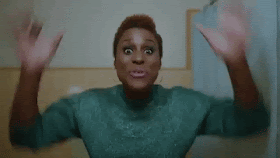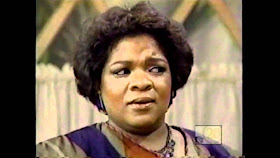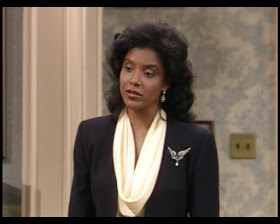 |
| In memorium: Glenn Rhee (Steven Yeun) from The Walking Dead, one of the most watched television series on earth right now. |
It's been a while since a hard ugly cry over a character death, a barbaric character death at that.
The grisly chill of seventh season premiere of AMC's
The Walking Dead contained heartbreaking tragedy as the survival group lost one of its most imperative core members. Glenn Rhee, a major character since season one of the zombie apocalypse series, was definitely one of the highlights, an instant favorite. Sweet, affable, funny, and badass, the former pizza delivery boy matured from funny wisecracking sleuth who drove getaway vehicles to compassionate moral compass of the group (family in other words) to a expectant father with true love Maggie Greene. In the scope of six years, he came into his own, earning the respect and support of his fellow survivor friends, showing strength, vitality, even leadership.
Everybody loved him.
Here's a few reasons why he'll be forever missed:
1. The "come with me if you want to live" introduction to Rick Grimes and the start of the nickname "Dumbass."
From the day Glenn saved the horse riding Rick out of danger, Glenn became an unlikely hero. Always the first to volunteer for the food/supply run, he proved to savvy on the road and off, kicking zombie butt and getting whatever was needed.
2. His strategic capability, bravery, and resourcefulness.
Often Glenn got left in a bind (a somewhat running joke of the series). Still, he knew how to not get killed. Adept and courageous, he was always quick on his feet. Whether finding a shelf to slam into a zombie skull or ripping out bones from a dead body, he could make a weapon out of anything and escape to safety.
3. His great post-apocalyptic romance.
The moment the group found Greene's farm (a temporary sanctuary), Glenn fell for the strong, resilient Maggie Greene. Their love story, filled with triumph and tragedy, brought a deeper maturity to Glenn's character. Yes, he valiantly fought hard to rescue his family from danger, saving Rick and Co. countless times over. With Maggie, however, his heart was on the line. He wouldn't lose that for anything.
He treated Maggie with courtesy and reverence, especially demonstrated after The Governor's disgusting assault of her. Glenn regarded Maggie gently. He broached this terrifying situation carefully, this monstrous added element of surviving horrific mistreatment. This wasn't zombies, this was man. Glenn didn't turn away or revolt from Maggie. He stayed, waiting patiently for her to come to him on her own.
4. His inclusion into a third family.
Hershel Greene, although showing earlier reluctance and disapproval, grew to care about Glenn. In a rather humbling scene, the older man gives Glenn a gold pocket watch heirloom (the opening credits posts this alongside Steven's name). Hershel sees Glenn as a surrogate son, worthy of his daughter, of being an honorary Greene member. It is a passing down of respect and gratitude, thus welcoming Glenn into the cusp of another group of people who love him.
5. His forgiving nature.
Glenn liked to believe in the goodness of humanity, that not all people should die for making mistakes, which perhaps brought on his glistening tears as he murdered people in their sleep in "Not Tomorrow Yet."
Earlier on, Tara was part of The Governor's group that had Axel and Hershel killed, but Glenn (still healing from the flu outbreak and having snuck out of the bus unbeknownst to Maggie) saved lonely survivor Tara from the zombies overtaking the prison. In return, she saves Glenn countless times.
Nicholas, a resident of Alexandria Safe Zone, was a liar who got Aaron and Noah killed. He tried to murder Glenn too. Even then, Glenn didn't retaliate, instead keeping a wary eye on him.
In "Thank You," Nicholas makes the ultimate sacrifice, which in turn, kept Glenn alive.
6. His riot gear.
No other words beyond that, Ladies and Gentlemen.
7. Metaphoric meaning behind his fateful last words, "Maggie, I'll find you."
When they were separated by The Governor's minions to leaving the prison to being abandoned beneath a dumpster, Glenn found his way back to Maggie. He always found her. They always found each other.
Yet this time around, happy endings will be in dreams and afterlife.
Steven Yeun played Glenn with compelling versatility that must be applauded. The Saturn nominated actor delivered a tremendous depth in this phenomenal character journey. With upcoming roles in the animated
Chew based on Rob Guillory's comic book series about a Cibopathic detective (psychic visions whenever eating) and action thriller
Mayhem about a framed corporate lawyer in the middle of a virus outbreak, may Yeun continue finding more roles breaking away from Asian racial tropes.

















































